THAAD is US ploy to destabilize region
Updated: 2016-07-09 09:15
By ZHU PING(China Daily)
|
||||||||
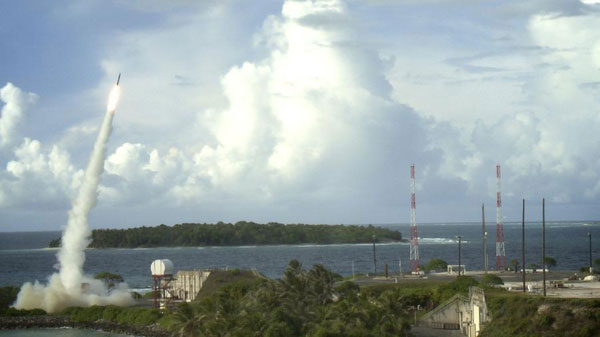 |
|
A Terminal High Altitude Area Defense (THAAD) interceptor is launched during a successful intercept test, in this undated handout photo provided by the US Department of Defense, Missile Defense Agency. [Photo/Agencies] |
Some elements use the excuse of being good to others to show their true colors. This is especially true for the United States. It has eventually persuaded the Republic of Korea to allow its missile defense system to be installed on ROK soil. Despite the vehement opposition from China and Russia, the THAAD, or Terminal High-Altitude Area Defense, system is ready to be deployed in the ROK, Washington and Seoul said on Friday.
The US has been trying to justify the necessity of THAAD on the pretext of protecting its allies from the nuclear threats from the Democratic People's Republic of Korea. But the truth is, Washington's move serves its "pivot to Asia" strategy perfectly at the cost of ROK's interests. The advanced anti-missile system, if deployed in the ROK, will not only escalate tensions on the Korean Peninsula, but also break the strategic balance and widen the trust deficit among the regional powers.
Seoul is about 200 kilometers from Pyongyang. So using THAAD to detect nuclear threats from the DPRK is somewhat like using a cannon to kill a mosquito. THAAD can detect threats as far as 2,000 km, and therefore any missile tests conducted by Beijing in Northeast, North or East China will be under US surveillance. As such, THAAD poses the most serious military threat to China and Russia-it will enable the US to keep a close eye on the military activities of both China and Russia. Given this fact, should China and Russia deploy similar defense systems in Mexico or Canada?
"Don't do unto others what you don't want others to do unto you." The US move defies this Chinese saying. Also it will destabilize Northeast Asia further.
China has always made efforts to help denuclearize the Korean Peninsula, and it is strongly against the DPRK pursuing nuclear weapons. Reflecting China's peaceful approach to denuclearization is its efforts to bring relevant parties back to the negotiation table to restore permanent peace in Northeast Asia.
As a responsible power, China doesn't shirk its duties. It supported the sanctions against the DPRK to compel it to abandon the nuclear path while trying its best to minimize the impact of the move on the country's ordinary people. In sharp contrast, the US has been busy adding fuel to the fire on the peninsula. It has even stabbed China in the back by pushing it to bear the brunt of the tensions after the DPRK conducted another nuclear test this year.
If the US goes ahead with its THAAD move, the DPRK will become even more determined to develop nuclear weapons, which will not pose a direct threat to the US but can create serious trouble for the ROK and China. It is time Seoul realized the origin of the ongoing refugee crisis in Europe is the invasion of Iraq and meddling in the internal affairs of other Middle East countries by the US and its allies.
The THAAD move will also deal a blow to China-ROK ties, which are enjoying their best ever period since the establishment of diplomatic relations in 1992. China is the ROK's largest trade partner, and the ROK is China's third-largest trading country. And both China and the ROK stand together in their opposition to Japanese politicians' efforts to whitewash Japan's World War II crimes.
But Washington is trying to drive a wedge between Beijing and Seoul, and reinforce the US-Japan-ROK military alliance. By using the excuse of the DPRK's nuclear tests to justify its THAAD plan, the US is sowing the seeds of distrust between China and the ROK, and forcing Beijing to face more pressure from Pyongyang's military-first policy.
The US considers itself wise; in reality it is fooling itself. The global stage is not the realm of the US alone, and good global governance is not possible without the cooperation of China, for it is the world's second-largest economy. So the US should heed China's call for a "new type of major-power relationship" and do a really good turn by not installing THAAD in the ROK.
The author is a writer with China Daily. zhuping@chinadaily.com.cn
- Eid al-Fitr celebrated worldwide
- Swedish PM looking at tightening laws after festival sex attacks
- British PM race cut to 3 hopefuls as 2 contenders exit contest
- Chinese herbalists offer free US treatment
- Obama praises Hillary's judgement hours after FBI's censure
- Rio mayor tells Olympic visitors: 'Don't expect New York or London'

 Griezmann scores twice to lift France into Euro final
Griezmann scores twice to lift France into Euro final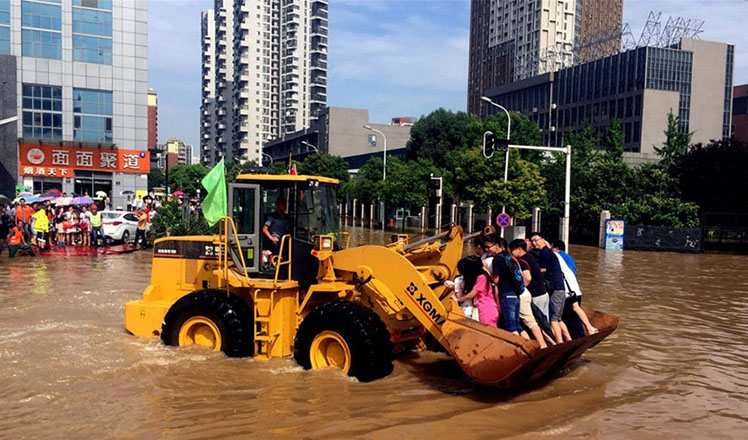
 Life goes on in flooded Wuhan
Life goes on in flooded Wuhan
 Paper cutouts offer a new view of world landmarks
Paper cutouts offer a new view of world landmarks
 Animals occupy Shanghai
Animals occupy Shanghai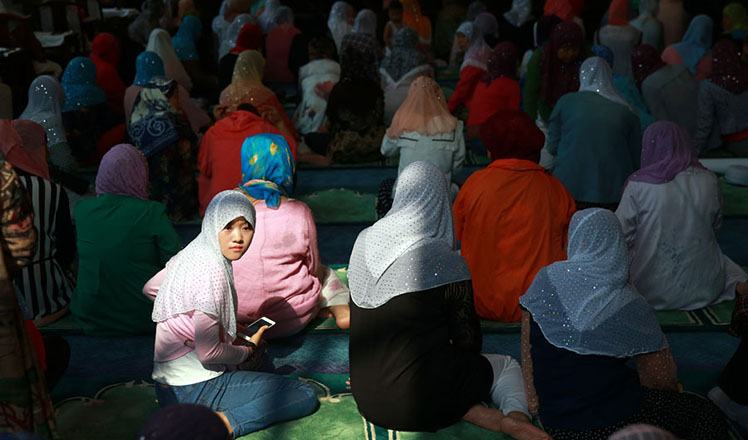
 Beijing Muslims mark end of Ramadan
Beijing Muslims mark end of Ramadan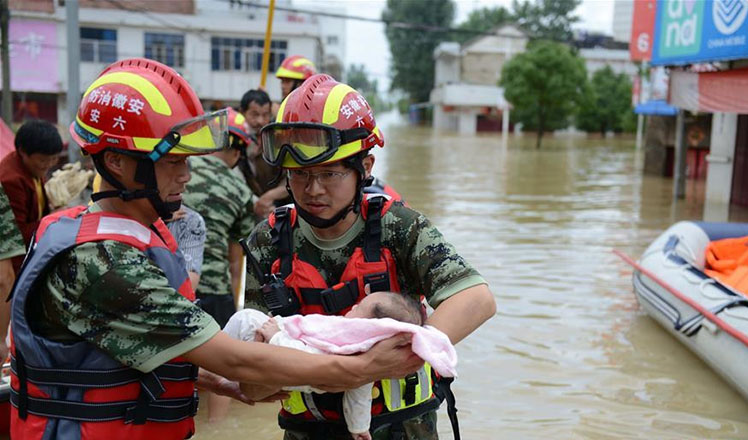
 Remember emerging heroes in China's floods
Remember emerging heroes in China's floods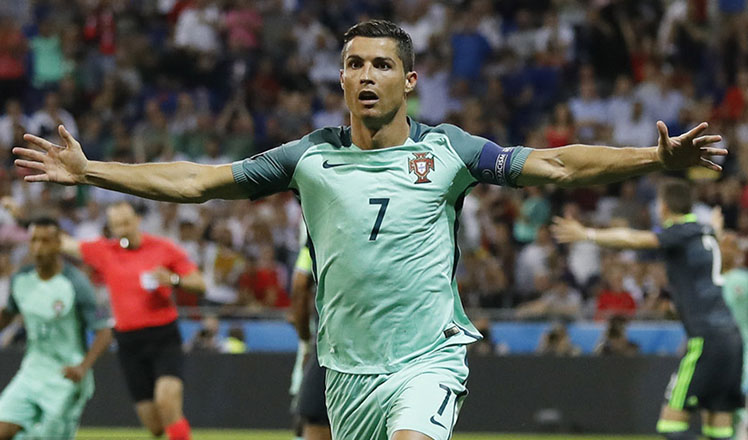
 Ronaldo powers Portugal into Euro 2016 final
Ronaldo powers Portugal into Euro 2016 final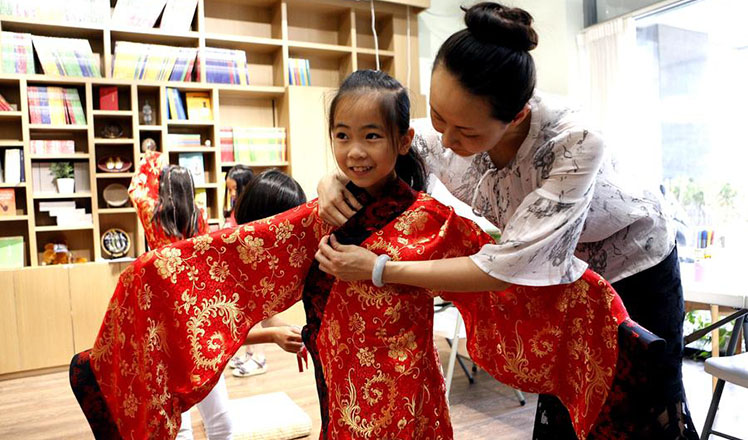
 Culture Insider: Six things you may not know about Minor Heat
Culture Insider: Six things you may not know about Minor Heat
Most Viewed
Editor's Picks

|

|

|

|

|

|
Today's Top News
Ministry slams US-Korean THAAD deployment
Two police officers shot at protest in Dallas
Abe's blame game reveals his policies failing to get results
Ending wildlife trafficking must be policy priority in Asia
Effects of supply-side reform take time to be seen
Chinese State Councilor Yang Jiechi to meet Kerry
Chinese stocks surge on back of MSCI rumors
Liang avoids jail in shooting death
US Weekly

|

|







